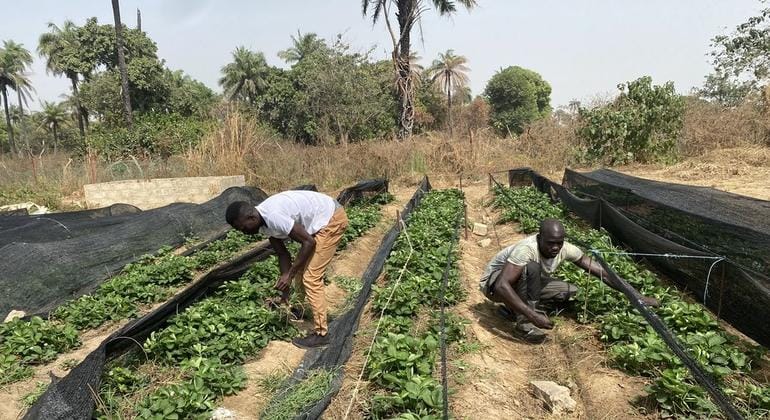Assessing the Effectiveness of Structural Assistance for Agricultural SMEs in The Gambia
Assessing the Effectiveness of Structural Assistance for Agricultural SMEs in The Gambia

Topic
This Master Thesis explores the effectiveness of structural assistance programs provided to agricultural SMEs in The Gambia, focusing on their impact on improving productivity, market access, and financial sustainability. By analyzing various support mechanisms—including financial aids, training, and market integration—the research aims to determine how well these initiatives meet the actual needs of the agricultural sector in The Gambia.
Relevance
The study proposes strategic enhancements to improve structural assistance for agricultural SMEs in The Gambia. Recommendations include adopting flexible financial models, improving stakeholder engagement, integrating technology effectively, streamlining implementation processes, and optimizing resource allocation. These changes aim to increase program accessibility, align initiatives with local needs, boost productivity, and ensure sustainable development by leveraging local expertise. These strategic improvements are anticipated to elevate the effectiveness, efficiency, and impact of agricultural support programs, fostering growth and sustainability in the sector.
Results
The study revealed that structural assistance programs in The Gambia have had mixed success. While some agricultural SMEs benefited from improved access to financial resources and training, challenges such as insufficient funding, bureaucratic hurdles, and misalignment with SME needs limited overall effectiveness. Enhanced market access and productivity were noted as positive outcomes, but the impact was inconsistent across different regions and sectors. The findings indicate that while the programs are beneficial in certain aspects, significant improvements are necessary to fully support SME growth and sustainability in the agricultural sector.
Implications for practitioners
Ø Adopt flexible financial models and enhance stakeholder engagement to increase program accessibility and align initiatives with local needs.
Ø Integrate technology effectively and streamline implementation processes to boost productivity and efficiency.
Ø Optimize resource allocation by leveraging local expertise, fostering sustainable development and long-term growth in the agricultural sector.
Methods
The study utilized a qualitative case study approach, conducting semi-structured interviews with 12 stakeholders in The Gambia's agricultural sector, including SME operators and government officials. Data collection was supplemented with document analysis to provide contextual depth. The Gioia methodology guided a systematic coding and theme development process, ensuring rigorous data analysis. Conducted in May 2024, ethical considerations were addressed through verbal consent, aligning with local practices. This methodology provided a nuanced understanding of the effectiveness of structural assistance for agricultural SMEs.
